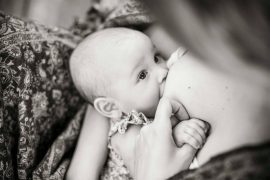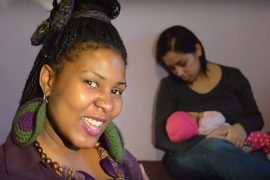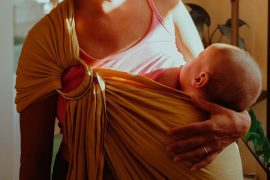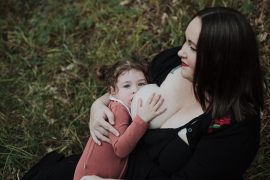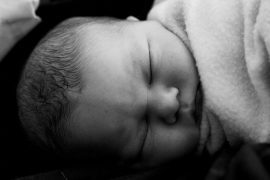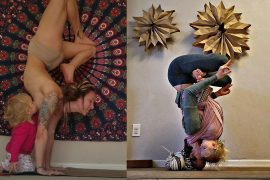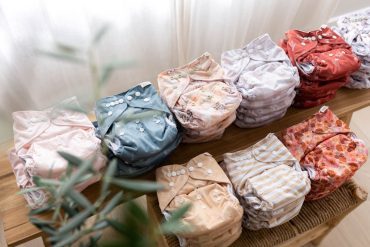And so I found myself in a very lonely and confusing place when I was advised to stop breastfeeding in order to move forward with the procedure. My baby at the time was under a year and breastfeeding was (and continues to be) a huge element of my parenting. It’s what my child comes to me for comfort and sustenance. To suddenly deny him that felt inconceivable. I was given two options: wean and have the biopsy or continue to be monitored with mammograms.
With mam’s history waiting felt like a ticking time-bomb. “With this grouping, I would be inclined to biopsy,” said the doctor.
“Is there no way I can continue to breast-feed and have the biopsy?”
I asked, trying to hold back the sobs I could feel building up in me. The doctor made a grimace and said it was possible but with the type of biopsy I needed there would be the risk of developing a milk fistula (a grim sounding scenario where milk comes spurting out of the biopsy site). “You definitely didn’t want to have that,” she said.
I left the room sobbing so much that my poor husband feared I’d got the worst news. A well meaning nurse saw my tears and took me into a private room. “You’ve done your bit for him,” she said soothingly, nodding at my infant son asleep in his pram. “Now you have to focus on yourself”.
All it did was make me feel like I was in the wrong because I wanted to keep breastfeeding. That I was the fool because I simply couldn’t imagine not feeding my son to sleep, nursing him through teething and tummy aches. I felt that I was ‘the crazy breastfeeding lady’ so often portrayed in the press – someone potentially putting my health at risk because I refuse to decommission my mammaries.
Here’s where I was lucky. Since I’ve written a little on the subject before, I knew experts to contact and find out if the doctor’s well-intentioned advice was the only route. Once I’d dried my eyes and pulled myself together, I contacted Dr Jack Newman, a globally recognised breastfeeding specialist, I messaged leading contacts at LLL and a top Irish lactation consultant I’d worked with before. I went onto a closed Facebook group with almost 20,000 Irish breastfeeding members to see if anyone had been in a similar position.
The response from all was resounding: I did not need to stop breastfeeding to have a biopsy – even the type I needed which required a thicker needle going deep into the breast. If worst came to worst and I developed a milk fistula I could still nurse on one side. Additionally, I discovered that even if I weaned in the morning, it would be a long time before my breasts emptied of milk while stopping suddenly would also come with risks of mastitis, unnecessary discomfort and distress.
I went back to the doctor and said I wanted to continue to breastfeed.
She in turn said that she had done more research and believed there was only a small risk of a milk fistula so I would be fine to have the biopsy and keep feeding – in fact they’d even managed to source me a smaller needle. I was appreciative that this was the response – but couldn’t the stress of premature weaning have been avoided?
I developed no fistula but I did contact an infection. Something very rare and nothing to do with the fact that I was feeding. The out-of -hours doctor who saw me for that, echoed what the lactation experts had said, that she could only think of very few instances when she would advise a patient to stop breastfeeding because of a health issue. That an active breast is nearly always the preferable option.
So what is the moral of my tale? Well I suppose it’s that doctors – even ones who are experts in breasts – aren’t experts in breastfeeding. I would never, ever have put my health in jeopardy and if I had *had to* stop nursing my child then of course I would have done that. But I’m glad I trusted my gut and sought a second opinion from experts when I was told to stop, rather than just accepting that opinion as fact. It’s sadly the case that many health care professionals are ill prepared to give medical opinions on breastfeeding issues. Few receive formal training and, with breastfeeding levels so low, there’s often not even broad enough experience to give informed advice.
When my firstborn was around six weeks old he seemed very gassy to me. I visited my then GP and was told we would need to look at what formula he should be on. I said I was breastfeeding. “When you move on to formula then,” was the reply. I said I had no intention of moving on to formula. “But you’ll have to at some point,” came the response from an incredulous doctor. I later saw a qualified lactation consultant who diagnosed tongue tie and I went on to breastfeed for three years until my child self-weaned, having never had so much as a sniff of formula.
We need to look at why our health care professionals are so ill-equipped to deal with breastfeeding issues. Because when you feel you’re drifting in the unchartered waters of a new and scary health issue, you need to feel the advice you’re getting puts you on safe and solid ground.
Chrissie Russell is a freelance feature writer and mum-of-two (currently breastfeeding a 14 month old) living in Ireland. Follow her on Twitter.

